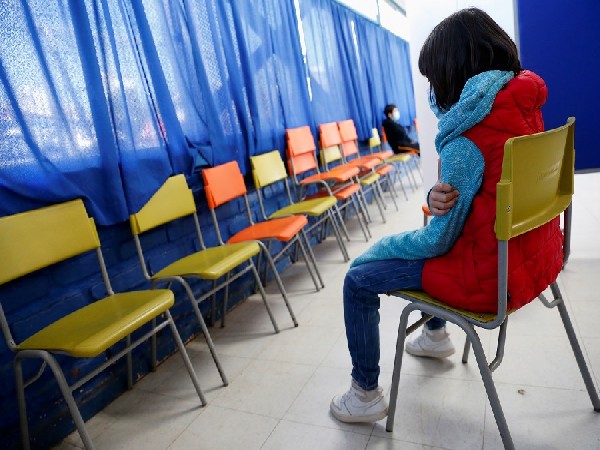UN Experts praise Bulgaria for reducing child mortality rate and ask about efforts to address online sexual violence
One Committee Expert said Bulgaria had made significant progress in reducing the mortality rate for children under age five.

The Committee on the Rights of the Child today concluded its consideration of the combined sixth and seventh periodic report of Bulgaria, with Committee Experts praising the State for reducing its child mortality rate, and raising questions about efforts to address online sexual exploitation of children and corporal punishment.
One Committee Expert said Bulgaria had made significant progress in reducing the mortality rate for children under age five. However, there were challenges in addressing mortality rates in rural areas.
Hynd Ayoubi Idrissi, Committee Expert and Coordinator of the Country Taskforce for Bulgaria, said that there were high levels of sexual violence against children in Bulgaria, especially online. What measures were in place to develop a comprehensive strategy to prevent the sale of children and child pornography? How was the legal framework in this regard being aligned with the Convention?
Another Committee Expert said the prohibition of corporal punishment was weak and there was social acceptance of such violence. What measures had the State party taken to strengthen normative prohibitions of corporal punishment and to introduce national programmes to address corporal punishment?
Introducing the report, Ivanka Shalapatova, Minister of Labour and Social Policy of Bulgaria and head of the delegation, said the reporting period was characterised by a lack of stability in the country and a series of political crises. Despite these difficulties, Bulgaria had achieved progress in the implementation of the Convention. Many of the Committee’s recommendations received in 2016 had been reflected in policies, programmes and legislative changes over the past eight years that safeguarded and promoted the wellbeing of children.
The cybercrime section of the Ministry of the Interior worked to protect children from online sexual exploitation, the delegation noted. Children were informed of different online threats and taught how to use the internet safely. In November 2023, the first national conference on children in the digital world was held.
Ms. Shalapatova said the Government recently adopted a National Programme for the Prevention of Violence and Abuse of Children 2023-2026, which defined the framework of the national policy for combatting violence against children. A new programme for the development of integrated services for victims of violence was currently being prepared. In addition, the Bulgarian authorities had established a free national children's hotline, which received calls from all over the country.
In closing remarks, Ms. Ayoubi Idrissi said the Committee was happy to hear throughout the dialogue of all measures in place to implement the Convention in Bulgaria. It would closely monitor the implementation of each measure. The Committee hoped that the mechanism to monitor follow-up to the Committee’s recommendations would be rapidly implemented. It also looked forward to Bulgaria acceding to the third Optional Protocol as soon as possible.
In her concluding remarks, Ms. Shalapatova said Bulgaria would carefully study all the Committee’s concerns and recommendations and promptly take follow-up actions. The exchange had allowed the State to clearly assess areas where progress had been made and areas where further efforts were needed. Bulgaria was committed to delivering on its promises and ensuring the rights of children.
The delegation of Bulgaria consisted of representatives from the State Agency for Child Protection; State Agency for Refugees; Ministry of Foreign Affairs; Ministry of Interior; Ministry of Justice; Ministry of Health; Ministry of Education and Science; and the Permanent Mission of Bulgaria to the United Nations Office at Geneva.
The Committee will issue its concluding observations on the report of Bulgaria at the end of its ninety-fifth session on 2 February. Those, and other documents relating to the Committee’s work, including reports submitted by States parties, will be available on the session’s webpage. Summaries of the public meetings of the Committee can be found here, while webcasts of the public meetings can be found here.
The Committee will next meet in public this afternoon at 3 p.m. to consider the combined sixth and seventh periodic report of Senegal (CRC/C/SEN/6-7).
- READ MORE ON:
- Bulgaria









